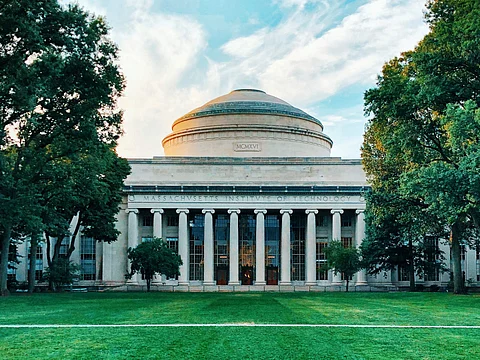

Indian Institute of Technology Madras Researchers are working with Massachusetts Institute of Technology (MIT), U.S, to develop a novel framework for high volume usage of by-products in structural materials. Industrial by-products are generated in huge quantities across the world and are now going into waste. This will be a major step forward towards a sustainable future.
The main outcome expected from this research is achieving a paradigm shift in material selection criteria for exploiting the usefulness of agricultural and industrial by-products. By successfully utilizing vast amounts of otherwise-undesired materials, the next generation of sustainable and durable building materials could be designed. These novel building materials will be attractive due to lower cost and environmental impact than existing materials.
This project is being led by Dr. Piyush Chaunsali and Prof. Ravindra Gettu, Department of Civil Engineering, IIT Madras, with Dr. Elsa A. Olivetti, Atlantic Richfield Associate Professor of Energy Studies, MIT. This Research Project was taken up under SPARC Initiative of the Ministry of Education, Government of India.
Elaborating on this project, Dr. Piyush Chaunsali, Department of Civil Engineering, IIT Madras, said, “A unique aspect of this Research Project is while there has been limited utilization of waste and by-products in structural materials such as concrete, this project aims at developing a novel framework for high-volume utilization of industrial by-products in alternative cementitious binders.”
The Problem being addressed by the Researchers is that by-products such as biomass ash, coal ash, red mud, and copper slag, among others, which are generated in large volumes and remain mostly underutilized due to their complex physico-chemical characteristics. This project aims to address growing challenge regarding the beneficial utilization of voluminous industrial by-products generated in India. Infrastructure construction offers potential sinks for these source materials due to the enormous volume usages, in applications such as roads, buildings and bridges, among others.
Speaking about this Research, Dr. Elsa A. Olivetti, Atlantic Richfield Associate Professor of Energy Studies, MIT, said, “This SPARC project is about developing new, more sustainable cements and cement binders. Cement concretes are some of the most widely used materials on the planet and so, they have a big environmental impact because we need so much of them and the processes that we use to make them have significant environmental impact.”
Further, Dr. Elsa A. Olivetti said, “In particular, we are trying to use industrial waste materials to make new cement binders so that we could have more sustainable materials. We want to think about various regions of India and what waste materials are available and how might they be used to make new cements that would have lower environmental footprint than the current building materials that are being used.”
Prof. Elsa Olivetti is an expert on economic and environmental sustainability of materials. Her expertise will provide a different dimension in order to perform sustainability assessment of the processes involving valorization of industrial by-products.
Prof. Elsa Olivetti of MIT visited IIT Madras during January 2020, and Prof. Ravindra Gettu visited MIT in February 2020. During the visits, research results and plans for further work were discussed. The collaboration involves faculty and student exchange between IIT Madras and MIT. Moreover, development of a new course on ‘Environmental and Economic Sustainability of Materials’ has also been proposed.
This research project combines the principles of materials chemistry, structural engineering, and life-cycle analysis to develop load bearing, durable, sustainable, and economically viable cementitious binders based on industrial by-products in India.
Other Important Objectives of this project include:
Ø Perform mapping and characterization of industrial by-products in India for assessing their availability and reactivity
Ø Explore low-energy pathways for high volume utilization of industrial by-products in cementitious binders
Ø Evaluate environmental sustainability of novel cementitious binders using life-cycle assessment
Ø Develop a broad framework based on materials chemistry for high volume (>50%) application of industrial by-products in infrastructure materials
SPARC (or) Scheme for Promotion of Academic and Research Collaboration aims at improving the research ecosystem of India’s Higher Educational Institutions by facilitating academic and research collaborations between Indian Institutions and the best institutions in the world from 28 selected nations to jointly solve problems of national and/or international relevance.
IIT Madras was chosen as one of the Institutes to be recognized as an ‘Institution of Eminence (IoE)’ in September 2019. The IoE initiative is part of a focused effort undertaken by the Government of India to improve the quality of higher educational institutions and make them world class. One of the highlights of the IoE initiative is that public institutions selected as ‘Institution of Eminence’ will be provided a financial assistance of up to Rs. 1000 crore, over a period of five years to emerge as world class institutions. In addition, they will begin admitting foreign students and in recruiting foreign faculty.
